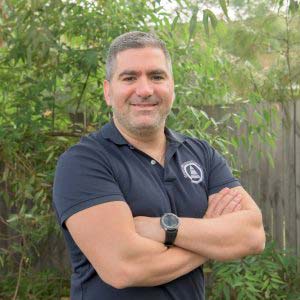Most people seek out treatment to help with their pain and get on with their lives. Other people seek out treatment for similar reasons, except they also want to know the evidence and the science behind the treatments being offered to them. If you also want to know how we analyse evidence within our particular field of medicine, read on!
Evidence-based healthcare professionals
When it comes to looking at evidence within our particular field of healthcare, it can be a bit of a murky area. One practitioner is an evidence-based practitioner. This person is a champion of evidence-based medicine and will generally only allow approaches in their repertoire that have been researched and verified by academia.
Disclaimer: This is for Educational Purposes Only
Let me take a quick intercession to inform you as to the nature of our advice. We are experienced, healthcare clinicians. We wish to share our experience with you on topics to do with your health. We may be a little colourful in doing so, but at the heart of what we do is in-the-trenches experience. Whilst we have achieved academic success and understand the evidence, we are not solely evidence-based. We are, however, EVIDENCE INFORMED.
We find that the evidence is usually 10-15years (at minimum) behind what we are seeing in the clinic. We see real people, with real problems, and we’ve made a great living out of offering real solutions.
If all you’re after is the researched evidence, you can find some on Google Scholar, or you can very easily look for more on Google. We want to give you real-life advice, most of which you may not find in the research.
There is no way that this document can replicate or replace expert assessment and guidance given by a qualified registered healthcare practitioner who has seen you personally. I am sure you’re aware that I have no knowledge of your personal medical history or how you take care of your body. If you require care from a qualified practitioner, you would be best served by seeing someone who can empathise with your situation and treat you accordingly.
I’m sure you understand that I disclaim any and all responsibility for anything you do as a result of reading this document. And by reading this article, you accept 100% responsibility for the actions of you or anyone under your care.
Just medical research evidence?
This type of practitioner will look at the evidence and base their practise solely on the evidence, even at the sacrifice of approaches that have worked over many lifetimes. That means if there isn’t enough evidence to support what they’re doing, they just won’t do it! Now, this seems like a very ethical and scientific way of doing things. And we all keep getting told to “listen to the science.” I mean, nobody wants to be treated with snake oil and magic potions right?!
So on the surface, this seems like the legitimate approach, especially in healthcare. But when you start seeing the practical applications of evidence-based medicine, you will find it has more holes in it than swiss cheese.
Clinical trials and individual variables
The first one is that evidence takes a long time to curate, by the time somebody gets clinical trial set up, gets funding for even larger clinical trials, if they get funding at all, then gets those clinical trails peer-reviewed, then gets that published. It can take anywhere between five, ten sometimes even fifteen years. If we’re to wait for those evidence to come out we’d really be stuck behind the eightball and we wouldn’t be able to help as many people as we’d like.
Another problem that we have is that the research itself, the experiential design tries to eliminate the variables. The problem with that, is real-life people have variables, they have kids, they have jobs, they have job sites they need to go to, they have shopping bags they need to carry, they don’t sleep well, they have diabetes, they have cholesterol, we need to understand these variables in our individual patients. The problem with the research is it tries to eliminate these variables and doesn’t always give us the best results.

This type of medical research was set up with pharmaceuticals in mind, not a holistic approach to treatment. They test one pill against one condition, and eliminate the variables to try and be specific with their outcomes. This works well with pills, not so much with people!
There are many problems other than research design. Who’s conducting the research? Do they have clinical experience? Where is the funding coming from? Who is reviewing the research? The system has many flaws. Fixing your criteria for treatment solely based on the current literature is like taking sex advice from a nun!
Evidence-informed practitioners
Another type of practitioner is the evidence-informed practitioner. This type of practitioner understands the evidence and looks at the evidence but siphons it through their own clinical experience and their education and comes up with the best reasoning for that particular person in front of them. Good practitioners, ones that get results, are evidence-informed. They can take a piece of literature and interpret it within the framework of the particular case they’re trying to solve.
In the fearsome age of the Covid-19 pandemic, all the experts (insert Hollywood celebrity here) keep insisting that we “listen to the science,” and “listen to the doctors!” And as we can plainly see, none of them can agree on anything. Even science can’t seem to agree with itself. But there are some great doctors out there that have a great understanding of treating viruses, medications, vaccines, and the big picture, because they are actually in the trenches treating people on a daily basis. They will have a better understanding than some academic sitting behind their desk looking at systematic reviews.
So in saying this, do we just throw research out the window? No, we need to understand the research, it has a place. Science is not exact. It’s not even about finding the truth. It’s just about being a little less wrong each time you try. And that’s how good research can have its place, by being a little less wrong each time.
What we do need to do is, we need to apply that research through our own clinical experience and then use that to create good clinical reasoning for the person in front of us. We treat an individual that is in front of us and we use the research to help us come to the best possible solution. Hope that helps, Stay Strong!
If you feel that any of the information we’ve given you here resonates with you and you feel we are in a position to help, please BOOK ONLINE as we would welcome the opportunity. If you feel that we can help you in any other way, please reach out to us via our CONTACT PAGE.

Dr. Sami Karam, Osteopath
I’ve been a qualified Osteopath since 2004. I’ve been playing football ever since I could remember and I have a passion for it. I’ve played at the highest level in the NSW State League at both Youth and Senior levels, and have also been Head Physician at numerous State League Clubs. I’ve travelled internationally and consulted with Sports academies in Barcelona and Italy. I have a special interest in Strength and Conditioning for footballers, as I believe it gives them an edge in their physical competition. My passion involves bringing all of this knowledge into every single treatment that I provide for all athletes. If you feel that I can help you and want to reach out to me, contact me.



